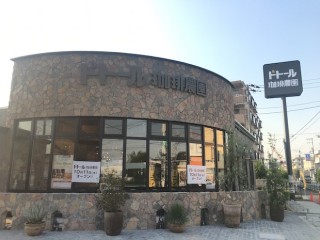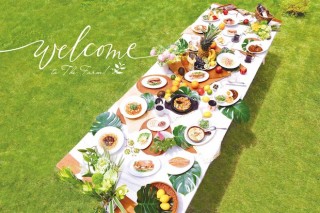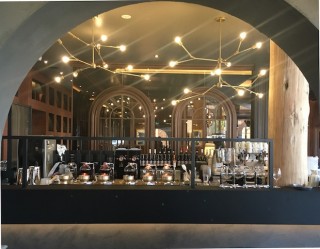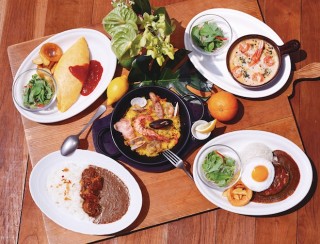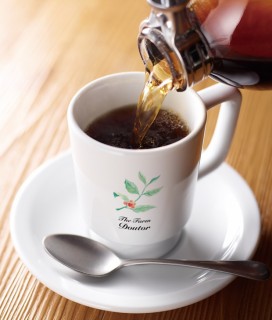Loading
Search
▼ Japan’s Biggest Coffee Shop Chain, Doutor Goes Upmarket with New “Farm” Branch in Tokyo
- Category:Cafe
In the varied and colorful world of Japanese coffee, consumers today can opt for canned coffee from a vending machine, a cheap cup of regular joe from the 7-Eleven, something more expensive from Starbucks, a lovingly brewed siphon coffee roast in a vintage (but smoky) kissaten, or an arguably over-priced cup prepared by perfectionist baristas at a foreign-style third-wave coffee shops.
Doutor is the most ubiquitous and basic coffee shop chain in Japan. Along with the likes of Caffé Veloce, Doutor occupies the unglamorous lower end of the market, similar to the diner-style fare served by “family restaurant” chains. Almost anyone will visit Doutor, but it’s not associated with quality or relaxation.
Doutor is the most ubiquitous and basic coffee shop chain in Japan. Along with the likes of Caffé Veloce, Doutor occupies the unglamorous lower end of the market, similar to the diner-style fare served by “family restaurant” chains. Almost anyone will visit Doutor, but it’s not associated with quality or relaxation.
The largest chain in Japan is not content with its reputation, as we can see from its latest venture: Doutor Coffee Farm, which opened on October 11th.
Located in Kamata in Setagaya ward, west Tokyo, the “farm” is meant to feel like a coffee plantation owner’s mansion. There is also a terrace and park area so patrons with dogs and children will be able to visit.
It offers more expensive roasts alongside a range of dishes, craft beer and desserts that are clearly aimed at a more metropolitan, chic demographic that wants gourmet food. That being said, the prices of the main dishes only just about exceed ¥1,000, so this is not quite a jump into the luxury market just yet.
Located in Kamata in Setagaya ward, west Tokyo, the “farm” is meant to feel like a coffee plantation owner’s mansion. There is also a terrace and park area so patrons with dogs and children will be able to visit.
It offers more expensive roasts alongside a range of dishes, craft beer and desserts that are clearly aimed at a more metropolitan, chic demographic that wants gourmet food. That being said, the prices of the main dishes only just about exceed ¥1,000, so this is not quite a jump into the luxury market just yet.
It isn’t the first time the Doutor has looked enviously at the third-wave coffee boom and the success of Starbuck’s in Japan, which has led to designer branches such as the crafts-themed coffee shop in Meguro and other concept stores. No doubt also worried about the onslaught of convenience store coffee, which directly competes with Doutor’s market for customers seeking cheap latte and other basic coffees, it published a book a few years ago featuring the work of the famous photographer Takashi Honma. It also already has the Excelsior Caffé chain, which attempts to replicate the look of Starbucks with middling success, and Le Café Doutor in Ginza or the cafe Colorado chain, which tries to be a kissaten in the manner of Cafe Renoir.
But as the popularity of convenience store coffee has proved, customers are still keen to buy affordable drinks, so it’s not a matter of completely renouncing its established status as a reliable place to get a cheap cup of coffee. Doutor is thus attempting to differentiate and branch out into the higher end of the market, which, for example, has served other omnipresent chains well.
Tsutaya went from being a default video and DVD rental and book store, found everywhere from suburbs to city centers, to a sophisticated retail experience with designer book stores and dining in locations like Daikanyama and Shonan. Similarly, McDonald’s had success with a series of stores designed in darker tones that felt more like cafes than fast food restaurants, all while offering a menu of very cheap latte and coffee than undercut Doutor.
Tsutaya went from being a default video and DVD rental and book store, found everywhere from suburbs to city centers, to a sophisticated retail experience with designer book stores and dining in locations like Daikanyama and Shonan. Similarly, McDonald’s had success with a series of stores designed in darker tones that felt more like cafes than fast food restaurants, all while offering a menu of very cheap latte and coffee than undercut Doutor.
- October 21, 2017
- Comment (0)
- Trackback(0)


